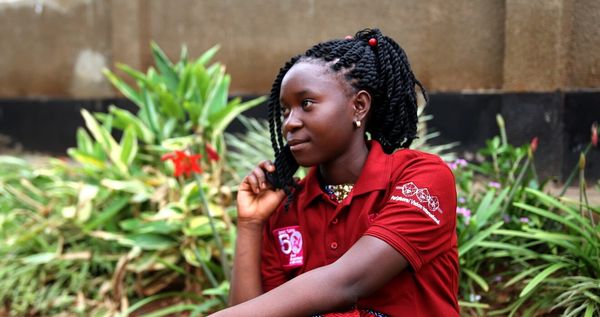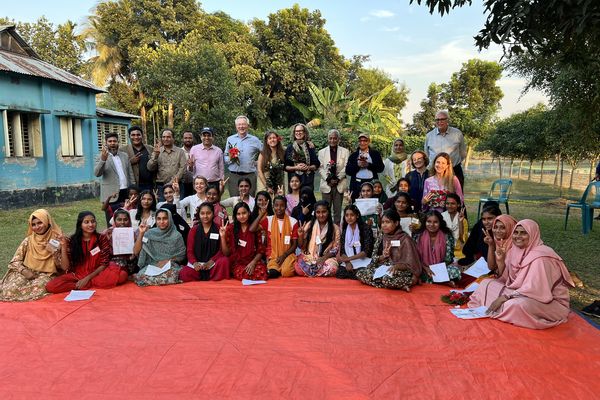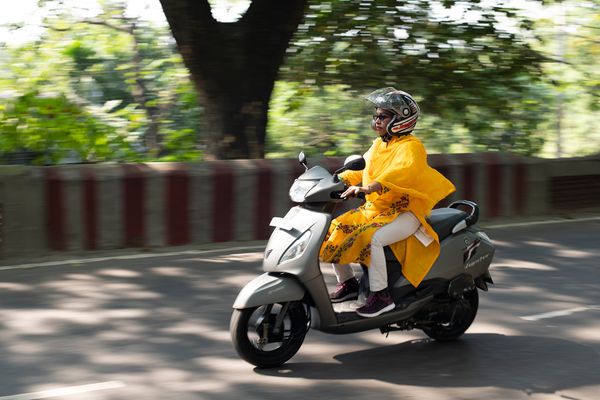Hawa is a 13-year-old girl who enjoys singing and going to church. Fatima is 15 and dreams of getting a sports scholarship. Jennifer is 18 and earns money through several small businesses. These three friends are the main characters in BRAC Girls Talk. Together, they encounter challenges related to their health, well-being, and finances. As they overcome these challenges, they learn from each other and from others in their communities.
When the COVID-19 pandemic emerged in 2020, NGOs quickly pivoted to remote models of program delivery. Recognizing that there is always the potential for disruptions to its programs, BRAC has been exploring new pathways to scale its youth empowerment programs and offset the negative impacts that the pandemic has had on adolescent girls and young women.
However, BRAC has historically run low-tech and high-touch programs; the high-tech models that some peer organizations use are unsuitable for many of the communities we work with—including rural and peri-urban Uganda. BRAC recognized that if it was going to create a remote model of program delivery, it would need to meet people where they are. Recently, BRAC was presented with an opportunity to develop a remote model of its flagship youth empowerment program, the Empowerment and Livelihoods for Adolescents program.
Enter BRAC Girls Talk: a collaboration between BRAC, Viamo, and Peripheral Vision International (PVI). The program uses gamified interactive voice response content to deliver educational programming to adolescent girls and young women through spoken audio. The collaboration leverages the strengths of all three organizations: BRAC’s experience delivering evidence-backed youth empowerment programming, Viamo’s expertise in mobile technology and content delivery, and PVI’s grounding in interactive and educational storytelling.
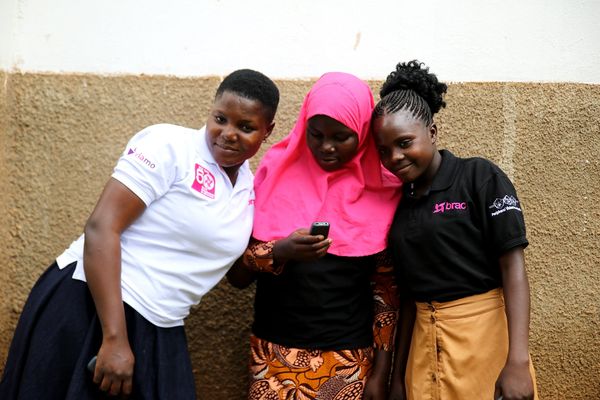
Participants in Uganda listen to BRAC Girls Talk. Photo by PVI and BRAC.
Low-tech for development
Rather than rote learning, BRAC Girls Talk features interactive, story-based content that was developed using PVI’s Wanji Games approach. Wanji Games, created in partnership with Viamo, are interactive voice response content designed to maximize learning and engagement through carefully constructed narratives, even for those with low literacy. The BRAC Girls Talk content is also accessible to those with limited access to technology: Participants access the games using feature phones provided by BRAC. These basic phones are the most popular type of cell phone in Uganda, and 71% of Ugandans have one.
BRAC Girls Talk also features interactive stories with characters that adolescent girls and young women can relate to. Games generally start with an introduction from the narrator, who remains a consistent voice throughout the listener’s learning journey. From there, the narrator introduces the scenarios our trusted characters are encountering, asking the listener to make choices about how to proceed. These questions allow the listener to make decisions that test her knowledge. If their answer is correct, they receive a positive response. If their answer is incorrect, they receive an explanation of the correct response.
Here is a selection of audio narration on budgeting from the BRAC Girls Talk game. As the narration highlights, participants interact with the games by making selections on the keypads of their phones.
How we did it
On August 17, 2022, the BRAC Girls Talk 12-week pilot project launched with a celebration among participants, community members, and project partners at St. Mathias Kalemba Secondary School in Nazigo, Uganda. The pilot is currently reaching 300 adolescent girls and young women in the Kayunga district of Uganda.
During the launch event, each participant received a basic feature phone and training on how to access the games. Participants were invited to listen to the first game on their devices alongside fellow BRAC Girls Talk participants.
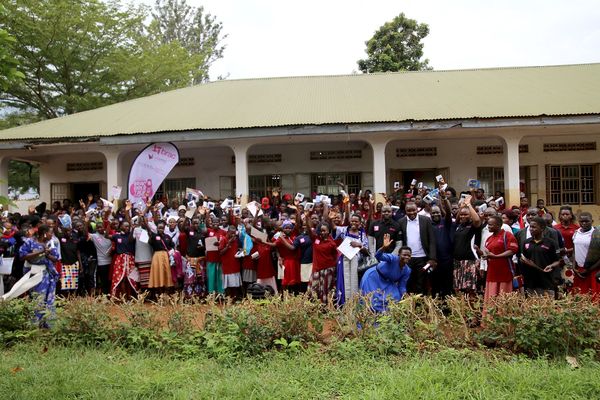
Participants celebrate the launch of the BRAC Girls Talk project at St. Mathias Kalemba Secondary School in Nazigo, Uganda. Photo by PVI and BRAC.
Following the launch, project participants began receiving a text message once every few weeks asking them to “flash” a number to get started. “Flashing” or “beeping” is the practice of calling a number and hanging up. The Viamo platform recognizes the phone call as a project participant and calls the user back. Once the girl answers the return call from Viamo, an audio narration begins. When the caller hangs up, they are not charged for a call. That means that accessing the games does not cost the user money, and they can call in at a time that suits their schedule.
Once connected to the games, participants get to meet the characters. On average, games can be completed in 12 minutes, and participants can play each game up to three times to explore different response options and further test their knowledge.
Looking ahead
BRAC’s Independent Evaluation and Research Cell (IERC) conducted a baseline survey of the adolescent girls and young women participating in the project before the launch. Participants typically range in age from 14 to 23. Their level of education varies considerably: over half of the girls are still enrolled in school, and among those who are out of school, approximately 13 percent have not completed their primary education. Following the 12-week pilot program, IERC will conduct an endline survey to track changes in knowledge, attitudes, and practices among the girls. BRAC, PVI, and Viamo will scale up the program in 2023 to make the most relevant content available nationally.
Through accessible, engaging, and relevant content, BRAC Girls Talk combines social empowerment, education, and economic empowerment, helping young people gain the knowledge and tools to overcome barriers and pursue futures of possibility.
>> Explore how BRAC scaled a girls empowerment program in Uganda.
Jenna Grzeslo is Senior Program Manager, Research and Learning at BRAC USA.
